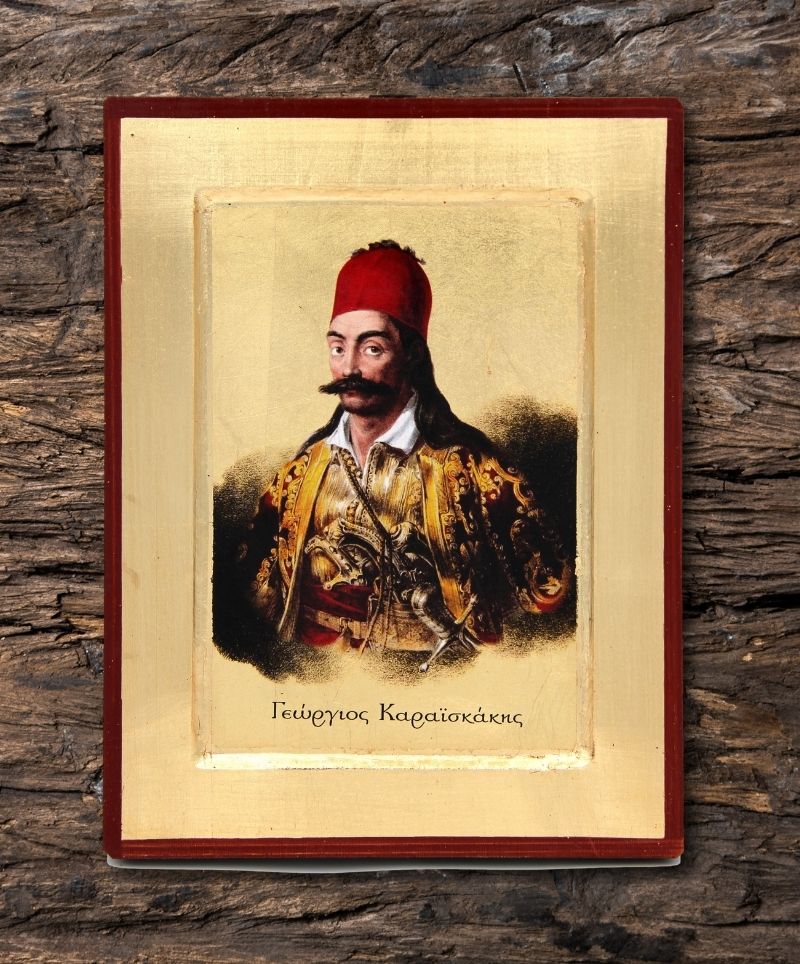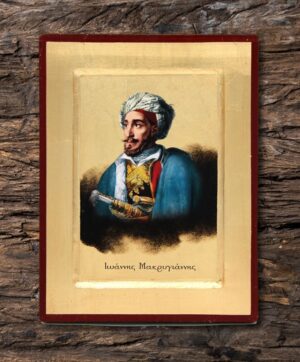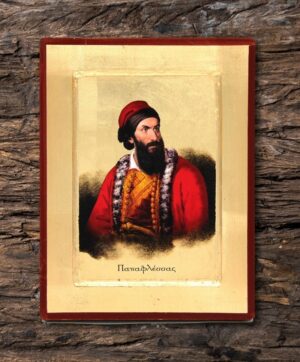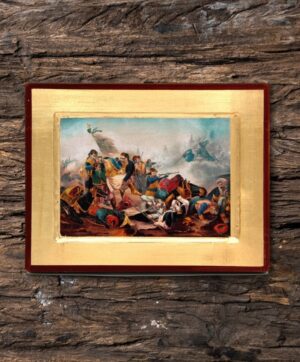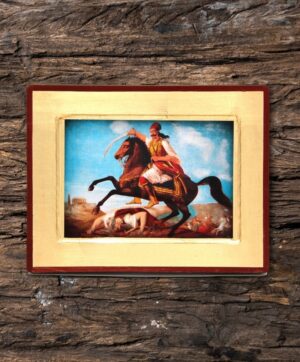Description
Georgios Karaiskakis was born on January 23, 1780 (or 1782) in Mavrommati, Karditsa and was the fruit of the relationship between the boatman Dimitris Karaiskou and the nun Zoe Dimiski, sister of the thief Kostas Dimiski and cousin of the chief George Bakolas. He grew up with his adoptive parents, a family from Sarakatsani, after his mother abandoned him, unable to bear the wire of an illicit relationship. From his mother, the “son of the nun” inherited his disobedient character and proverbial profanity.
He had spent some time living in the court of Ali Pasha and fighting for him
The sentence for the ultimate betrayal
Soon however he defected and joined as a warrior of Katsantonis. His controversial attitude, combined with the wider power struggle of the chiefs and the politicians during that first stage of the revolution, led to his conviction for ultimate betrayal on April 30, 1824, and the deprivation of the powers he had accumulated until then. On June 25, of the same year, took refuge in Nafplio, where the Government recognized him again all his ranks and positions.
In April 1827, the philhellenic soldiers Cochran and George, appointed by the Troizina Assembly led the Greeks to a doomed frontal battle with the Turks. Karaiskakis, for years ill with tuberculosis, threw himself with self-sacrifice in battles resulting in warnings from Kolokotronis, how he must “save himself in order to save his homeland”.
Karaiskakis did not listen to him. His end was written on the day of his name day. On the night of April 22, 1827, untimely shots fired by Cretan warriors before the signal for a general attack led to a clash with the Turks.
Karaiskakis reached the point where he was injured by a bullet in the groin area. The next day he would lose his life. The Greeks, with low morale and poor strategy, suffered a crushing defeat at the Battle of Analatos by Kioutachis, who very quickly suppressed the revolution in Central Greece.
The nation mourned the loss of the hero. Karaiskakis was thin, weak (suffering from tuberculosis), of medium height, particularly nervous, irritable, swearing and insulting. But he had a steely will, a power of thought and criticism, and a great ability to make and execute decisions very quickly. In a word, he was a leader. Another question is whether, as he said, his character made him sometimes an angel and sometimes a devil.




